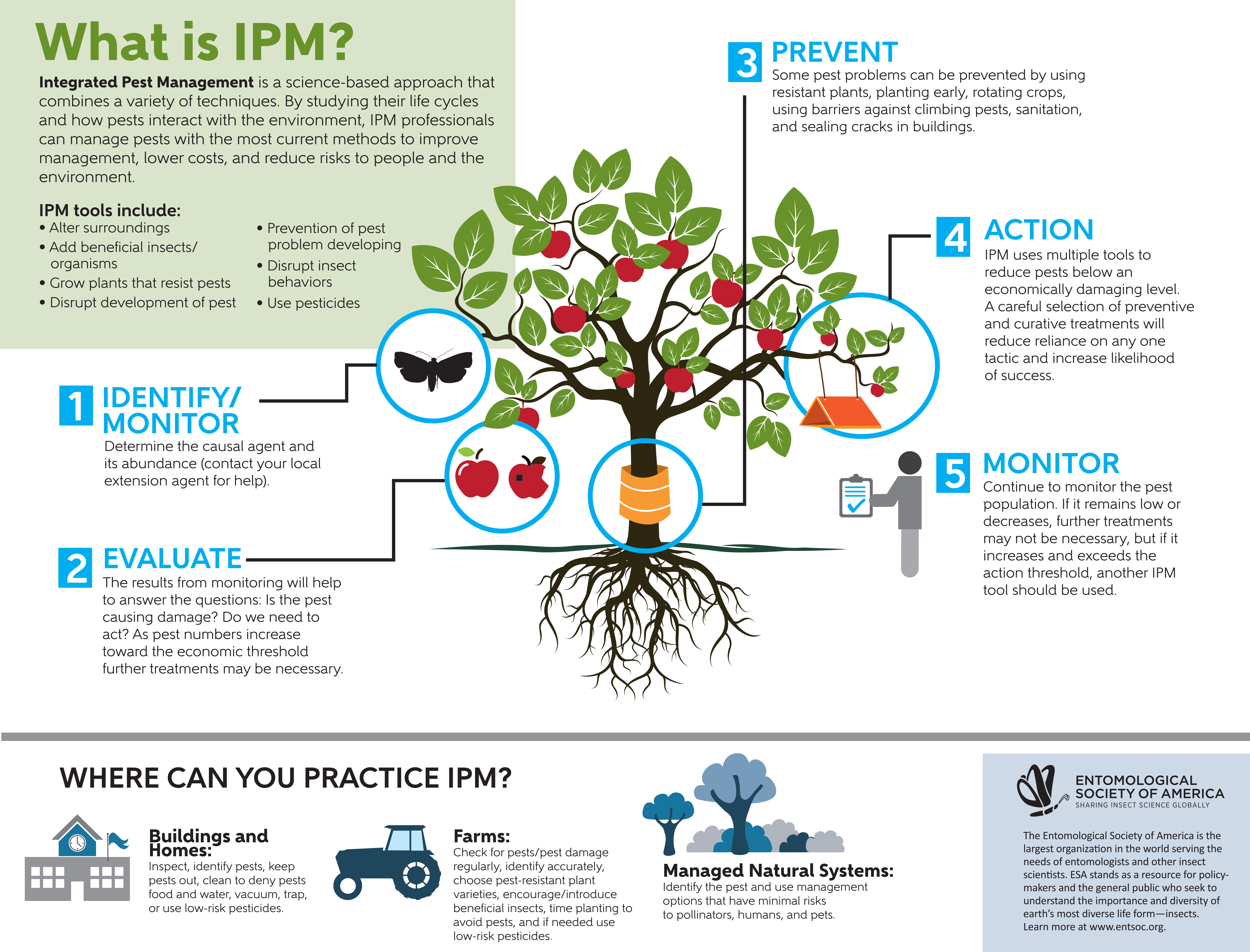The Role Of Bug Control In Food Safety And Hygiene
The Role Of Bug Control In Food Safety And Hygiene
Blog Article
click this link By-Franklin Glover
Are you familiar with the hidden threats that bugs position to the safety and hygiene of your food? From rats to insects, these undesirable visitors can pollute your active ingredients, surfaces, and storage areas.
This post discovers the vital duty of bug control in preserving the greatest requirements of food safety and security and hygiene. Discover effective strategies and avoidance measures that will certainly aid you shield your service, clients, and reputation.
Don't allow pests jeopardize the quality of your food.
The Effect of Pests on Food Safety and Health
In your kitchen area, pests can have a significant impact on food security and hygiene. These undesirable visitors, such as rodents, bugs, and cockroaches, can contaminate your food, surfaces, and tools with harmful bacteria, viruses, and parasites. They can quickly access your cupboard, closets, and also your fridge, leaving droppings, urine, and hair.
Not only can they ruin your food by eating with packaging, but they can additionally spread out illness like Salmonella, E.coli, and Listeria. Envision preparing a meal for your family, unaware that the active ingredients you're utilizing are already polluted.
It's crucial to take prompt activity to stop and manage bugs in your kitchen. Regular cleaning, appropriate food storage space, and expert pest control measures are essential to ensure food safety and security and preserve a sanitary setting in your kitchen area.
Efficient Pest Control Techniques for the Food Sector
Applying reliable parasite control approaches is essential for preserving food security and hygiene in the food market. By implementing these techniques, you can stop bugs from infecting the food and ensure that your items are risk-free for usage.
One reliable method is to consistently check and monitor your facility for indications of parasite task. This consists of checking for droppings, nests, or any damages brought on by bugs.
It's additionally vital to secure all entrance points to stop pests from entering the center. Regular cleansing and sanitation are vital, as parasites are drawn in to food residue and spills.
In addition, proper waste management is essential to prevent the accumulation of food waste that can attract bugs.
Preserving Health Specifications Through Bug Avoidance Steps
To preserve hygiene standards, you need to routinely apply pest avoidance steps. By taking positive actions to avoid pests from entering your food facility, you can guarantee the safety and sanitation of your properties. Here are some reliable bug avoidance steps to think about:
- Seal all fractures and gaps: Insects can go into via also the tiniest openings. Regularly inspect and seal any spaces in doors, home windows, wall surfaces, and floors to keep insects out.
- Correct waste administration: Deal with food waste promptly and securely in secured containers. This will certainly minimize the tourist attraction of pests and protect against infestations.
- Normal cleansing and sanitizing: Maintaining tidiness in your establishment is essential. Consistently clean and sterilize all locations, paying special interest to areas where insects might conceal or reproduce.
- Carry out a monitoring system: Frequently check your properties for indicators of parasite task. Set up bug surveillance tools, such as traps or sensors, to determine and deal with any prospective concerns at an early stage.
Conclusion
So bear in mind, when it involves food safety and security and health, bug control plays a crucial role.
By carrying out Mechanical control and safety nets, we can make sure the highest possible requirements of sanitation and security in the food market.
Don't let insects endanger the quality of our food; allow's stand together and secure our health and wellness.
